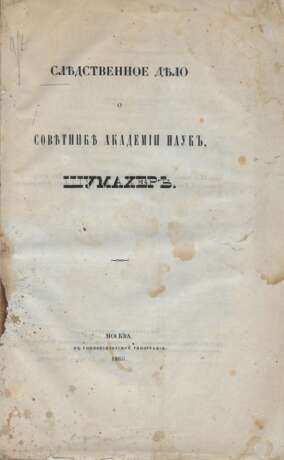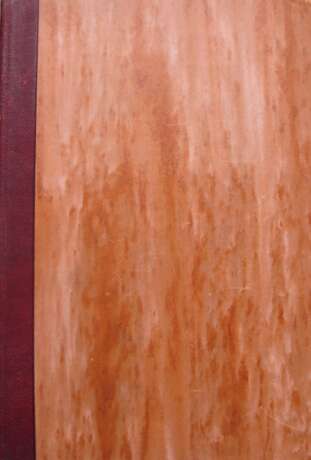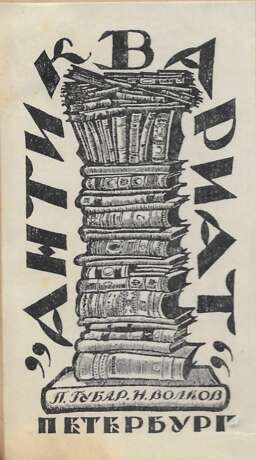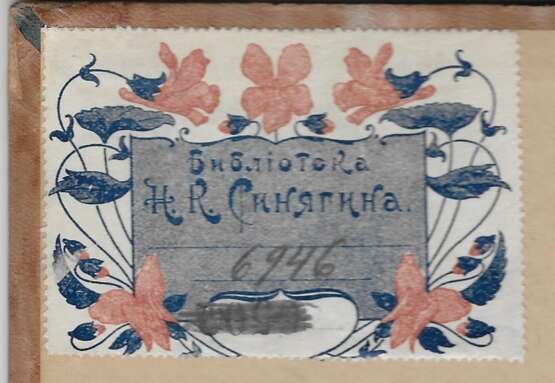ID 697449
Lot 65 | Следственное дело о советнике Академии наук Шумахере.
Estimate value
€ 500 – 600
В полукожаном издивидуальном переплете эпохи с золотым тиснением. На форзаце орнаментальный экслибрис Н.К. Синягина. На нахзаце сюжетный книготорговый знак: «Антиквариат П.Губар.Н.Волков. Петербург» работы Сергея Чехонина. Очень хорошая сохранность.
Иван Данилович Шумахер (1690—1761) — деятель русской науки, директор
библиотеки Академии наук. В 1742 году после расследования жалобы А.К. Нартова, Шумахер за растрату средств был отстранен от должности и посажен под домашний арест, но потом был оправдан комиссией кн. Б.Г. Юсупова и восстановлен в должности. Шумахер был признан виновным лишь в растрате казенного спирта. Предположительно инициатором жалобы был адъюнкт Михаил Васильевич Ломоносов. При Шумахере был напечатан подробный каталог книг Академической библиотеки.
Николай Кузьмич Синягин (1874—1912) — библиофил, коллекционер, библиограф. Его библиотека, содержала около 20 000 книг, листов гравюр, литографий и акварелей. Кроме коллекционирования Синягин занимался описанием иллюстрованных русских книг, составил два выпуска, подготовил "Материалы к истории императора Александра I и его эпохи". После смерти Синягина библиотека была куплена П.В. Губаром. Антиквариат П. Губара и Н. Волкова — один из лучших антикварных книжных магазинов периода НЭПа. Помещался на Невском проспекте и был задуман по образцу книжной лавки Смирдина.
Павел Викентьевич Губар (1885—1976) — знаток и собиратель. Часть собрания П.В. Губара находится в музее Личных коллекций в Москве. Николай Михайлович Волков (1880—1926) — друг и один из любимых учеников книготорговца В.И. Клочкова. В 17 лет был допущен до сложной, кропотливой работы по составлению книготорговых каталогов и прекрасно с этим справлялся (фирмой Клочкова было выпущено более 500 каталогов).
Редкость.
| Address of auction |
Аукционный дом «Жар-Птица» ул. Октября 48, оф. 36 143962 Реутов Russia | |
|---|---|---|
| Preview |
| |
| Phone | +33605538621 | |
| Buyer Premium | 25.0% | |
| Conditions of purchase | Conditions of purchase | |
| Shipping |
Postal service Courier service pickup by yourself | |
| Payment methods |
Wire Transfer Cash |






